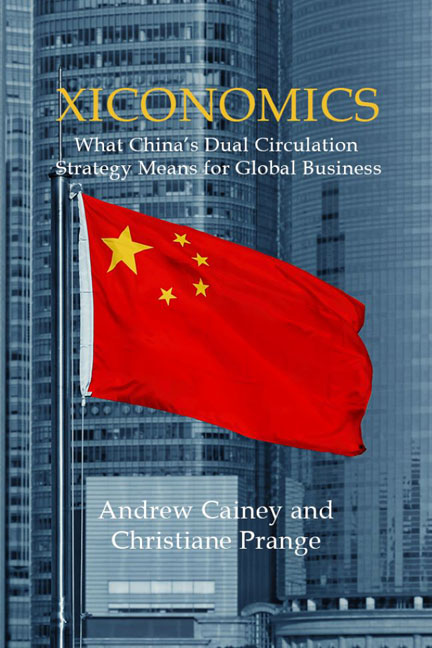3 - Xiconomics and the China policy puzzle
Published online by Cambridge University Press: 23 January 2024
Summary
At the opening of the 13th National People's Congress in Beijing, the then premier, Li Keqiang, presented the 2022 Government Work Report, which laid out policy priorities for the coming year. China analysts scurried away to count mentions of “Dual Circulation” and of “Common Prosperity”, a term that had achieved even greater prominence in 2021. Those looking came back almost empty-handed. Instead, Xinhua described the term “High-Quality Development” as “grabbing the spotlight as one of the catchphrases”. At times in China, policy pronouncements seem no more than an alphabet soup of disconnected phrases, falling in and out of fashion. It can be hard to understand which represent lasting priorities and which are simply slogans of the day.
“Dual Circulation” is but one term among many mentioned in policy speeches. How do these different terms fit together? What is the mix between slogan and substance? The consistent element is the central – or, in the phrasing of CPC discourse, “core” – role of Xi Jinping. Rather than an alphabet soup of terms, think of them as pieces of a jigsaw puzzle of Chinese economic policy that together make up Xiconomics. In addition to Dual Circulation, six more jigsaw pieces help make sense of the context, objectives and overall policy agenda of Xi Jinping and the CPC. Fitted together, they highlight the differences between China's domestic environment and the rest of the world. These very differences demonstrate the distinction between the internal and the external. For foreign businesses, they provide substance to the cliché that “China is different” that goes beyond differences in consumer preferences and competitive environment. They reinforce the importance of Dual Circulation as a framework with which to assess the economic and business landscape.
THE CHINA POLICY PUZZLE
This chapter describes these six additional pieces and attempts to fit them together. The first is a simple fact: the CPC rules China and Xi Jinping rules the CPC. Although no individual's hold on power is guaranteed, Xi is widely acknowledged as the most powerful Chinese leader since Mao Zedong. Second is a phrase, the “Great Rejuvenation of the Chinese people”. Xi uses this expression to place his CPC agenda for China in the broad sweep of history. The third piece is the new definition of success for China's development. In the language of Party ideology, Xi Jinping has changed the “principal contradiction” that all policy must address.
- Type
- Chapter
- Information
- XiconomicsWhat China's Dual Circulation Strategy Means for Global Business, pp. 35 - 48Publisher: Agenda PublishingPrint publication year: 2023



